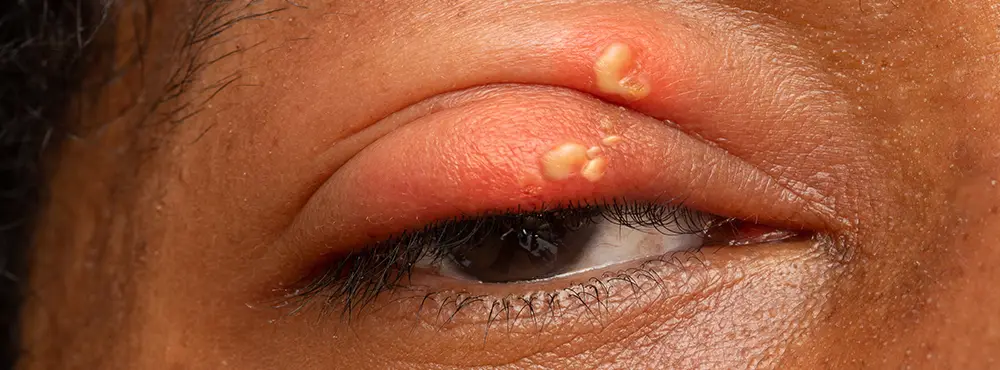
 Offers
Offers-
 Account
Account
-
0
 Favorite
Favorite
-
0
 Basket
Basket



You can contract herpes within the eye area. There are three different types of eye herpes (ocular herpes) that can be contracted:
Iridocyclitis is a type of uveitis (eye inflammation) that affects the front sections of the eye. In this particular case, it is the iris (coloured section of the eye) that becomes inflamed. This leads to pain and redness in the eye, light sensitivity and changes in the quality of vision. The infection can also occur in the retina or the inner lining of the back of the eye. In this case, it is known as herpes retinitis.
This is a viral corneal infection and the most familiar form of eye herpes. This type of ocular herpes generally only affects the upper layer (epithelium) of the cornea and will mostly heal without leaving scars.
When an infection penetrates deeper into the layers of the cornea, this is referred to as Stromal keratitis. This often results in scarring, impaired vision and on rare occasions, complete blindness. It is usually the result of not responding within adequate time to the initial infection.
Eye herpes can be transmitted in one of two ways:
Eye herpes has several symptoms. However, some of the symptoms of ocular herpes have similar characteristics to other eye-related infections. This is why it’s important to monitor the symptoms and seek medical attention if they become more severe or don’t disappear. It may require further examination by a medical professional to fully diagnose ocular herpes.
General symptoms of ocular herpes include:
Eye herpes has no cure and can reoccur over time. Antibiotic or steroidal drops are usually used to alleviate and treat symptoms instead. The exact type of treatment given will be decided by an examining doctor. In cases when the cornea is scarred, surgery might be required.
Disclaimer: The advice in this article is for informational purposes only and does not replace medical care or an in-person check-up. Please check with an eyecare professional before purchasing any products or remedies. For information on our article review process, please refer to our Editorial Policy.